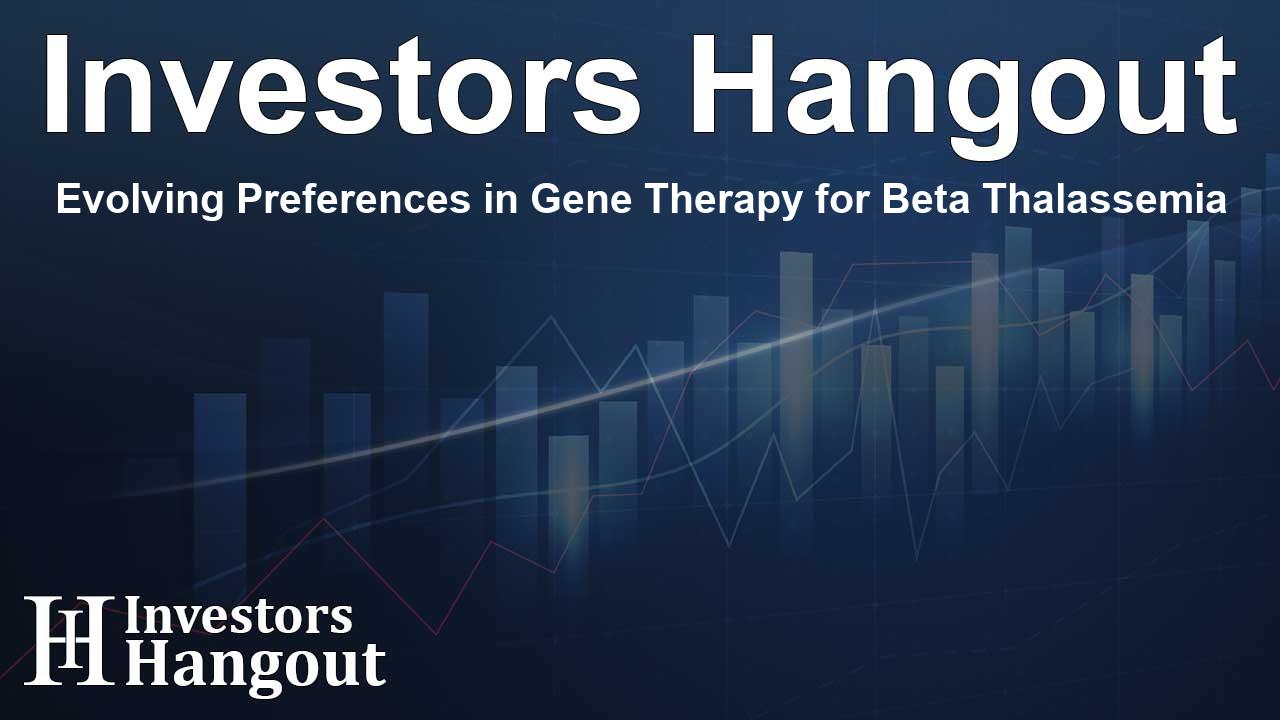Evolving Preferences in Gene Therapy for Beta Thalassemia

Shifting Trends in Gene Therapy
As gene therapies for transfusion-dependent ?-thalassemia make waves in the healthcare landscape, a growing dialogue has begun among hematologists on the optimal treatment approach: gene editing versus gene addition. This discussion is crucial as new data from expert surveys reveal a decisive shift in physician preferences.
Survey Insights on Treatment Preferences
Recent surveys conducted by Market Dynamix highlight a significant preference for Casgevy, a CRISPR/Cas9-based therapeutic, among hematologists. Currently, around 50% of physicians favor Casgevy over Zynteglo, a therapy utilizing a lentiviral vector to introduce a functional HBB gene into patients. This stark contrast reflects a growing confidence in gene editing technologies.
Understanding Casgevy's Mechanism
Casgevy (exagamglogene autotemcel), developed by Vertex and CRISPR Therapeutics, operates by editing genes to deactivate the BCL11A enhancer. This process stimulates the natural production of fetal hemoglobin (HbF), which plays a crucial role in compensating for defective ?-globin chains. Clinicians emphasize the treatment's potential for efficient genetic editing and favorable efficacy profiles, along with real-world experiences underscoring its benefits.
Zynteglo's Unique Approach
On the other hand, Zynteglo (betibeglogene autotemcel) employs a distinct method by reinstating normal hemoglobin production through the addition of healthy ?-globin genes into a patient’s own hematopoietic stem cells. Physicians appreciate its well-documented safety record and high rates of transfusion independence, which is particularly appealing in managing beta thalassemia over the long term.
Personalization in Treatment Choice
While preferences are shaping up, treatment choices often hinge on multiple factors including patient genotype, the expertise of treatment centers, insurance nuances, and individual comfort with each technology. This personalized approach is essential due to the varying clinical and personal contexts faced by patients.
Addressing Access Challenges
Despite the advancements and promise of these gene therapies, many physicians, particularly in rural and suburban regions, have reported that demand currently outstrips available resources. Additionally, geographic barriers play a significant role in access, with hematologists in various regions citing the distance to certified gene therapy facilities as a significant hurdle. Coupling this with high costs, insurance approval delays, and limited treatment slots further complicates patient access to critical therapies.
The Importance of Ongoing Market Analysis
As beta thalassemia remains a complex and challenging condition requiring ongoing care, Spherix Global Insights is committed to tracking developments in the hemoglobinopathy market. Their comprehensive Market Dynamix services provide valuable insights into treatment trends and unmet needs, while Patient Chart Dynamix focuses on real-world treatment practices through robust data collection and expert physician surveys.
About Spherix Global Insights
Spherix Global Insights stands as a premier independent market intelligence firm dedicated to delivering valuable insights and strategic guidance within the life sciences sector. Their team of specialists is adept at evaluating the nuances of rapidly evolving markets, including hematology among others. Spherix empowers clients to navigate opportunities for growth effectively while staying at the forefront of these innovations.
Their unique model integrates market research with real-time data, helping stakeholders make informed decisions and optimize treatment strategies.
Frequently Asked Questions
What are the main types of gene therapy for beta thalassemia?
The main types currently discussed are Casgevy, which utilizes CRISPR/Cas9 technology, and Zynteglo, which uses a lentiviral vector to insert a functional HBB gene.
Why are preferences shifting towards Casgevy?
Preference for Casgevy is growing due to its innovative gene editing capabilities, efficiency, and positive real-world efficacy data, moving away from traditional gene addition methods.
What factors influence treatment choice?
Choices depend on several individual factors, including patient genetics, healthcare provider experience, insurance availability, and patient comfort with the treatment.
Are there accessibility challenges with gene therapy?
Yes, many patients face barriers such as distance to specialized centers, high costs, and prolonged insurance approval processes, which can limit timely access to therapies.
How does Spherix Global Insights contribute to the field?
Spherix provides detailed market analysis, tracking trends and patient experiences in the treatment of beta thalassemia, which offers valuable guidance for healthcare providers and stakeholders.
About The Author
Contact Evelyn Baker privately here. Or send an email with ATTN: Evelyn Baker as the subject to contact@investorshangout.com.
About Investors Hangout
Investors Hangout is a leading online stock forum for financial discussion and learning, offering a wide range of free tools and resources. It draws in traders of all levels, who exchange market knowledge, investigate trading tactics, and keep an eye on industry developments in real time. Featuring financial articles, stock message boards, quotes, charts, company profiles, and live news updates. Through cooperative learning and a wealth of informational resources, it helps users from novices creating their first portfolios to experts honing their techniques. Join Investors Hangout today: https://investorshangout.com/
The content of this article is based on factual, publicly available information and does not represent legal, financial, or investment advice. Investors Hangout does not offer financial advice, and the author is not a licensed financial advisor. Consult a qualified advisor before making any financial or investment decisions based on this article. This article should not be considered advice to purchase, sell, or hold any securities or other investments. If any of the material provided here is inaccurate, please contact us for corrections.
